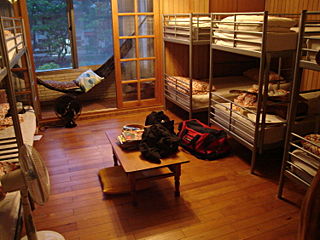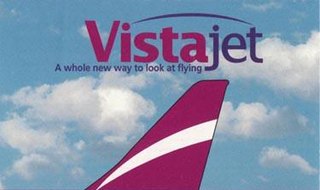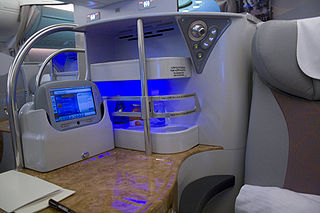
An airline is a company that provides air transport services for traveling passengers and freight. Airlines utilize aircraft to supply these services and may form partnerships or alliances with other airlines for codeshare agreements. Generally, airline companies are recognized with an air operating certificate or license issued by a governmental aviation body.

The Airline Deregulation Act is a 1978 United States federal law that deregulated the airline industry in the United States, removing U.S. federal government control over such areas as fares, routes and market entry of new airlines, introducing a free market in the commercial airline industry and leading to a great increase in the number of flights, a decrease in fares, and an increase in the number of passengers and miles flown. The Civil Aeronautics Board's powers of regulation were phased out, but the Act did not diminish the regulatory powers of the Federal Aviation Administration (FAA) over all aspects of aviation safety.

An airline alliance is an aviation industry arrangement between two or more airlines agreeing to cooperate on a substantial level. Alliances may provide marketing branding to facilitate travelers making inter-airline codeshare connections within countries. This branding may involve unified aircraft liveries of member aircraft.

Hostels provide lower-priced, sociable accommodation where guests can rent a bed, usually a bunk bed, in a dormitory and share a bathroom, lounge and sometimes a kitchen. Rooms can be mixed or single-sex, and private rooms may also be available. In the 2010s, hostels often have wifi access.
A frequent-flyer program (FFP) is a loyalty program offered by an airline.
RyanairDAC is an Irish low-cost airline founded in 1984, headquartered in Swords, Dublin, Ireland, with its primary operational bases at Dublin and London Stansted airports. It forms the largest part of the Ryanair Holdings family of airlines, and has Ryanair UK, Ryanair Sun and Laudamotion as sister airlines. In 2016, Ryanair was the largest European budget airline by scheduled passengers flown, and carried more international passengers than any other airline.
A day-tripper is a person who visits a tourist destination or visitor attraction from his/her home or hotel/hostel in the morning and returns home or to his/her hotel/hostel the same evening.
Economy class, also called scum class, steerage, standard class or (slang) cattle class, is the lowest travel class of seating in air travel, rail travel, and sometimes ferry or maritime travel. Historically, this travel class has been called tourist class on ocean liners and third class, or even fourth class, on railways.
A passenger airline is an airline dedicated to the transport of passengers.

A round-the-world ticket is a product that enables travellers to fly around the world for a relatively low price. RTW tickets have existed for some time and in the past were generally offered through marketing agreements between airlines on several continents. Now, they are almost universally offered by airline alliances such as SkyTeam, Star Alliance and Oneworld, or else by specialist travel agencies that will spend time helping customize a trip to the consumer's needs. Prices vary but are generally in the range of 2,500–6,000 USD for an economy class ticket and 5,000–14,000 USD for business class. Sometimes, depending on airline and stops, it can be as low as 1171 GBP. An alternative for a round-the-world ticket is a continent pass.

An airline meal, airline food, or in-flight meal is a meal served to passengers on board a commercial airliner. These meals are prepared by specialist airline catering services and normally served to passengers using an airline service trolley.

A staycation, or holistay, is a period in which an individual or family stays home and participates in leisure activities within driving distance of their home and does not require overnight accommodations. Alternatively, and commonly in UK usage, it is a holiday spent in one's home country rather than abroad. Common activities of a staycation include use of the backyard pool, visits to local parks and museums, and attendance at local festivals and amusement parks, such as Busch Gardens, Six Flags, or SeaWorld. Some staycationers also like to follow a set of rules, such as setting a start and end date, planning ahead, and avoiding routine, with the goal of creating the feel of a traditional vacation.

Vistajet was a Canadian low-cost airline based in Windsor, Ontario established in April 1997. Vistajet operated a fleet of leased Boeing 737-200 aircraft, but the airline ceased operations in September 1997, due to lower than expected passenger traffic.
Airline booking ploys are used by travelers in commercial aviation to lower the price of flying by circumventing airlines' rules about how tickets may be used. They are generally a breach of the contract of carriage between the passenger and the airline, which airlines may try to enforce in various ways.
The Southwest Effect is the increase in airline travel originating from a community after service to and from that community is inaugurated by Southwest Airlines or another airline that improves service or lowers cost.

An aircraft cabin is the section of an aircraft in which passengers travel. At cruising altitudes of modern commercial aircraft, the surrounding atmosphere is too thin for passengers and crew to breathe without an oxygen mask, so cabins are pressurized at a higher pressure than ambient pressure at altitude.
Interlining, also known as interline ticketing and interline booking, is a voluntary commercial agreement between individual airlines to handle passengers traveling on itineraries that require multiple flights on multiple airlines. Such agreements allow passengers to change from one flight on one airline to another flight on another airline without having to gather their bags or check-in again.

A mainline flight is a flight operated by an airline's main operating unit, rather than by regional alliances, regional code-shares, regional subsidiaries, or wholly owned subsidiaries offering low-cost operations. Mainline carriers typically operate between hub airports within their network and on international or long-haul services, using narrow-body and wide-body aircraft. This is in contrast to regional airlines, providing feeder services to hub airports operating smaller turboprop or regional jet aircraft, or low-cost carrier subsidiaries serving leisure markets.












